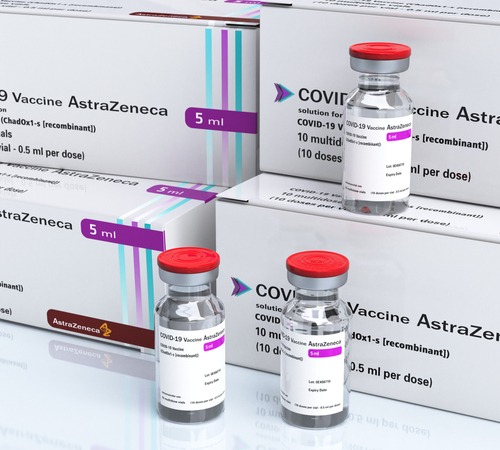
AstraZeneca, already racked with setbacks in the European Union, faced another crisis in its COVID-19 vaccine efforts on Tuesday when the U.S. Data and Safety Monitoring Board (DSMB) expressed concerns that recent trial data released by the company is outdated.
The focus of concern is AZD1222, AstraZeneca’s COVID-19 vaccine, originally developed with Oxford University. At the beginning of this week, it seemed to show renewed promise in the U.S., with interim phase three trial data demonstrating that it was well-tolerated and approximately 79 percent effective at preventing symptomatic COVID-19. It also showed 100 percent efficacy in preventing severe cases and hospitalization.
Initially, the DSMB reported no safety concerns related to the vaccine. Its trial funding was also supported by the National Institute of Allergy and Infectious Diseases (NIAID) and the Biomedical Advanced Research and Development Authority (BARDA). The results led to AstraZeneca discussing submission for Food and Drug Administration (FDA) Emergency Use Authorization.
However, the DSMB announced concerns with the data.
“Late Monday, the Data and Safety Monitoring Board (DSMB) notified NIAID, BARDA, and AstraZeneca that it was concerned by information released by AstraZeneca on initial data from its COVID-19 vaccine clinical trial,” NIAID said in a statement released on Tuesday. “The DSMB expressed concern that AstraZeneca may have included outdated information from that trial, which may have provided an incomplete view of the efficacy data. We urge the company to work with the DSMB to review the efficacy data and ensure the most accurate, up-to-date efficacy data be made public as quickly as possible.”
NIAID Director Dr. Anthony Fauci undertook a series of interviews with media outlets on the matter as well, warning the AstraZeneca data could be a bit misleading, and calling the whole situation an unforced error.
Confusion mounted further when AstraZeneca responded, releasing a statement that the numbers it published on Monday were based on a pre-specific interim analysis with a data cut-off of Feb. 17. That clashes with NIAID’s statement, which implies that more recent data changed the trial’s efficacy findings.
“We have reviewed the preliminary assessment of the primary analysis and the results were consistent with the interim analysis,” AstraZeneca said in a statement. “We are now completing the validation of the statistical analysis. We will immediately engage with the independent data safety monitoring board (DSMB) to share our primary analysis with the most up to date efficacy data. We intend to issue results of the primary analysis within 48 hours.”
In its phase three trial, AZD1222 was pitted against a placebo for testing on 32,000 volunteers. Approximately 20,000 people received the actual vaccine, administered in two doses four weeks apart. Multiple clinical trials of the vaccine candidate have been conducted worldwide, however, and the World Health Organization has previously recommended use of the vaccine for prevention of COVID-19 in adults, even standing up for the candidate as European unease over potential, unproven side effects have grown.




